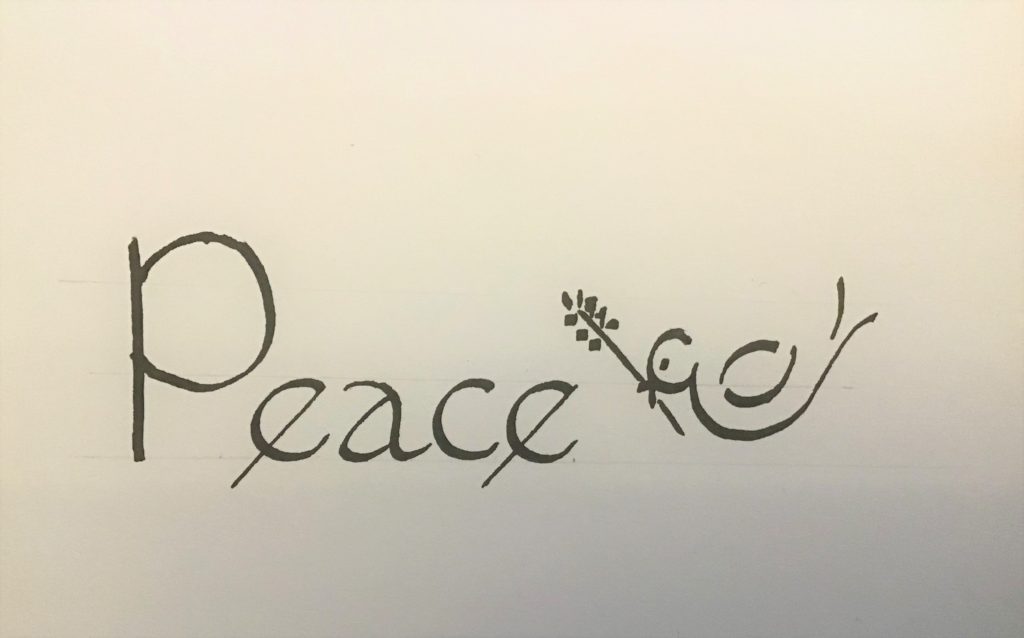We live in divisive times. These last few years have seen fractures widening on so many issues: Brexit, Trump, race, gender and sexual orientation. Increasingly, what began as dialogue and debate has fallen into the shrill cry of outrage. And as each shouts louder, the quiet voice of reason is drowned out.
Without doubt, there has been plenty to be concerned about. Injustices too many to count have occurred; individuals and groups have suffered. There is much to be done. But talking and blaming are the least likely routes to a lasting solution. Our only hope is in learning to listen.

When singing in a choir, as much of our energy needs to be directed to what everyone else is singing as in following our own lines. The diversity of the notes, the varying ranges and tones are what makes the music beautiful. So too, in society.
We need diversity to thrive. We need to have our ideas and values challenged. Without this, we risk falling into a sort of mono political void – where the extremes of Nazism on the right and communism on the left reside.
Recently, I have been very disturbed by the tendency of the cancel culture to fall into this very trap where their battle cry is: If you do not agree with me, then I shall ostracise you, or worse have you lose your job. In the defence of one kind of thinking, individuals have simply suppressed another.
And it is so seductive. Who doesn’t enjoy feeling right? Who doesn’t enjoy that sense of moral superiority? We post and repost sometimes cruel memes, knowing that we will be rewarded with smiley faces and supportive comments. No-one I know likes Trump, for example, and his behaviour has been outrageous. However, I fear that in joining the jeering masses that criticise him, we too have become diminished. If we fill our heads with hate, I fear our hearts soon follow.
And the wedge between those who support him and those who do not widens further. What we need to do is ask why anyone would support such a man. The same has been true of Brexit in the UK. It is so easy to view the holder of the opposite opinion as a fool or worse. And perhaps some are, but when it literally divides a nation in half, we should assume that there is some cause for their position. If we discuss, if we listen, we may discover that they have cause for their beliefs. We may unearth the very fears and difficulties that led them to it. We may, if we are willing to dive into that messy, challenging area of policy change, work towards helping resolve them.
Black lives matter

Of course, black lives matter and the global protests have sparked a long-overdue discussion of how race impacts lives. That so many (of every hue) marched in support of this is a sign that a good number genuinely value our multi-cultural society. But speeches, and marches, only go so far. We need to engage with one another and this is not possible when either side is viewed as the enemy. I was somewhat appalled to see when I opened my online library catalogue that one of the best sellers was titled: Why I’m No Longer Talking to White People about Race. Ironically, I’m sure that it will be read by numerous white readers wishing to improve their understanding, but it saddens me nonetheless that many feel the divide is unbridgeable.
Perhaps a sign of hope should be taken from the star of Biden’s inauguration: a young black woman reciting her own work with the first female, mixed race Vice-President sitting behind her.
Let it begin with me
Since my post was going to be about harmony – blending a variety of voices into one beautiful sound, I looked for an appropriate audio-visual representation and found this gorgeous choir below. The singers come from diverse backgrounds. If I was looking for something to sum up what I hoped to say, it is this.
And let it begin with me is a powerful challenge. Ultimately, we cannot wait for others to show us the way. The times are too pressing for that. We can only look to our shared humanity and follow the golden rule: Do unto others as you would have done unto you. When I meditate on equality, I always come back to this. It is as simple to say as it is difficult to carry out. Yet if we wish to live in a world where we respect and value each other, we really don’t have an option.

